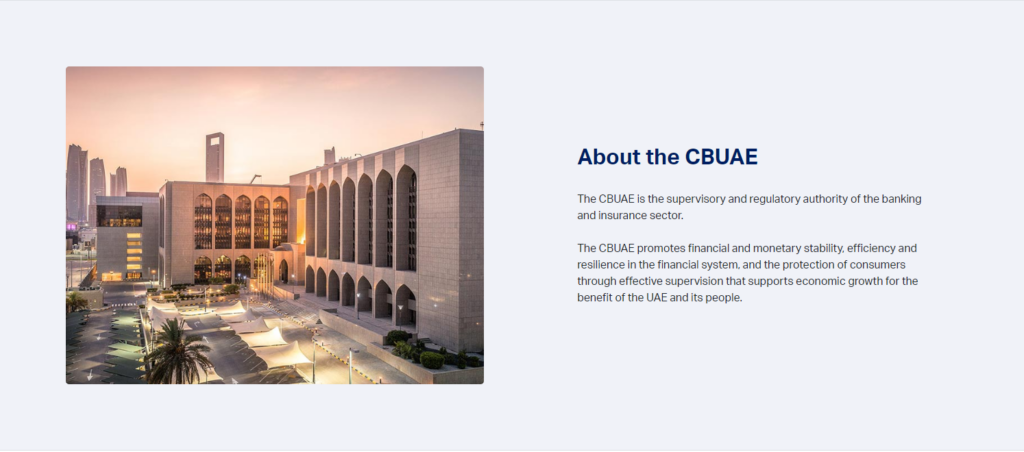Debt Collection in the UAE: Getting Your Money Back in 2024
The economic vibrancy of the United Arab Emirates (UAE) attracts a myriad of businesses, both local and international. However, with increased economic activity comes the inevitable challenge of unpaid debts. Unfortunately, if your company faces the challenge of unpaid debts in the UAE, and your efforts to recover outstanding debts from the debtor prove unsuccessful, it can adversely impact your cash flow. In such situations, effective debt collection becomes a critical component of financial management. This article provides creditors with a thorough exploration of debt collection practices in the UAE, covering the legal landscape, challenges, and detailed strategies and guidance.
1. Legal Landscape of Debt Collection in the UAE
The legal framework governing debt collection in the United Arab Emirates (UAE) is robust and multifaceted, encompassing various laws and regulations, and judicial procedures. Key components of the legal framework include:
Federal Laws
The UAE operates under a federal legal system. Federal laws relevant to debt collection include Federal Law No. 18 of 1993 (Commercial Transactions Law), Federal Law No. 5 of 1985 (Civil Transactions Law), and Federal Law No. 3 of 1987 (Penal Code). The laws provide guidelines on debt collection including the rights and responsibilities of creditors, debtors, and debt collection agencies.
Sharia Law Influence
Islamic Sharia principles also influence the legal framework of debt collection in the UAE, particularly in matters related to finance and commerce. While the UAE legal system is primarily based on civil law, Sharia principles may be considered in certain cases, especially concerning financial transactions and contractual disputes.
Court System
The UAE Ministry of Justice serves as the primary governing body overseeing legal matters related to debt collection. Local courts and specialized commercial courts play pivotal roles in dispute resolution and the enforcement of debt collection.
Alongside the legal system, several other specialized organizations contribute to regulating debt collection practices in the UAE.
Central Bank of the UAE
Central Bank of the UAE provides guidance to licensed financial institutions, including debt collection agencies, detailing requirements for conducting fair debt collection practices.

The UAE Credit Bureau
The UAE has a Credit Bureau that maintains records of both individual and corporate credit information. Debt collection agencies frequently utilize this resource to evaluate the creditworthiness of debtors.
2. Challenges of Debt Collection in the UAE
While the legal framework in the UAE is robust, debt collection is not without its challenges. Cultural intricacies, language barriers, and complex business relationships can complicate negotiations and settlements. Additionally, the time-consuming nature of navigating the legal system may pose challenges for creditors seeking swift resolution.
Cultural Diversity
The UAE’s diverse population, especially in big cities like Dubai or Abu Dhabi, brings with it varied cultural norms and communication styles, which can pose challenges in debt collection efforts, particularly when navigating cultural sensitivities and preferences.
Legal Complexity
The legal framework for debt collection in the UAE is multifaceted, encompassing federal laws, local regulations, and Sharia principles. Navigating these legal intricacies while ensuring compliance can be challenging for creditors.
Language Barriers
Language barriers can lead to misunderstandings, delays in debt recovery processes, and increased costs associated with translation services. Finding solutions to bridge these language gaps is crucial for ensuring smooth and efficient debt collection operations in the UAE.
Economic Volatility
The UAE’s economy is susceptible to fluctuations, influenced by factors such as oil prices, global market trends, and regional geopolitical dynamics. Economic volatility can impact debtors’ ability to repay debts and may increase the risk of defaults.
Lengthy Legal Procedures
Legal proceedings in the UAE can be time-consuming, with lengthy court processes and administrative hurdles. This can prolong debt collection efforts and increase associated costs for creditors.
Lack of Credit Information
Despite the presence of a Credit Bureau, access to comprehensive credit information may still be limited in the UAE. This lack of data can make it challenging for creditors to assess the creditworthiness of debtors accurately.
Navigating these challenges requires careful planning, a thorough understanding of local laws and regulations, effective communication strategies, and, in some cases, the assistance of law firms and debt collection agencies familiar with the UAE’s unique landscape.

3. Useful Tips for Debt Collection in the UAE
Recovering unpaid debts from a foreign country can indeed be a daunting task, but there are several tips that may enhance your chances of successful debt settlement in the UAE.
Understand the Legal Landscape
Familiarize yourself with the legal framework governing debt collection in the UAE, including relevant laws, regulations, and procedures. This will help ensure compliance and avoid legal pitfalls.
Establish Clear Terms
Clearly outline payment terms, deadlines, and consequences for non-payment in contracts and agreements. Having clear terms upfront can facilitate smoother debt collection processes later on.
Keep Detailed Records
Keep detailed records of all communication, payment agreements, and actions taken during the debt collection process. Comprehensive documentation can serve as evidence in case of disputes and help track progress.
Offer Flexible Payment Options
Be willing to negotiate and offer flexible repayment plans tailored to debtors’ financial situations. Providing options for installment payments or discounts for early settlement can incentivize timely repayment.
Maintain Open Communication
Maintain regular communication with debtors to remind them of outstanding payments and discuss repayment options. Open and transparent communication can help build trust and facilitate prompt resolution.
Be Respectful and Professional
Maintain professionalism and treat debtors with respect, even in challenging situations. Adopting a respectful and empathetic approach can encourage cooperation and increase the likelihood of successful debt recovery.
Be Persistent but Patient
Debt collection in the UAE may require persistence and patience. Stay persistent in following up with debtors, but also recognize that resolution may take time, especially in complex cases.
Seek Professional Assistance if Necessary
If debtors fail to respond or dispute the debt, consider seeking assistance from legal professionals or debt collection agencies with expertise in UAE laws and procedures.

4. Enlisting a Debt Collection Agency in the UAE
Navigating debt recovery processes in the UAE can be complex and challenging, particularly for creditors seeking to recover debts from foreign entities. In such situations, enlisting the assistance of debt recovery services within the UAE can be invaluable. This section explores the general process of debt recovery services in the UAE and provides insights into the considerations involved in selecting a trusted collection agency in the UAE.
4.1 Why use debt collection services from a collection agency?
When seeking to recover outstanding debts from a foreign debtor, creditors frequently seek assistance from a local collection agency to manage unpaid debts efficiently. A collection agency in UAE offers specialized services designed to navigate the complexities of debt collection within the UAE’s legal and cultural landscape. The advantages of utilizing debt collection services from a collection agency in the UAE fall into the following aspects:
Expertise and Experience
Collection agencies specialize in debt recovery and have extensive experience navigating the legal and cultural complexities of the UAE. They understand and adhere to local laws and regulations, which can increase the likelihood of successful debt recovery.
Time and Resource Efficiency
Outsourcing debt collection to a professional agency saves your time and resources. Instead of dedicating internal staff to chasing unpaid debts, you can focus on core business activities while the collection agency handles the recovery process.
Preservation of Business Relationships
Collection agencies act as intermediaries between creditors and debtors, helping to preserve business relationships. They employ diplomatic communication strategies to maintain goodwill while still pursuing debt recovery.
Specialized Resources and Technology
Collection agencies have access to specialized resources and technology for efficient debt collection. They utilize advanced software systems for tracking and monitoring debtors, which can enhance the effectiveness of recovery efforts.
Customized Solutions
Collection agencies offer tailored solutions to meet your specific debt collection needs. Whether you have individual delinquent accounts or require assistance with large-scale debt recovery, they can customize their approach accordingly.
Improved Success Rates
Professional debt collectors are skilled in negotiation and persuasion techniques. Their expertise can lead to higher success rates in recovering unpaid debts compared to handling debt collection on your own.
4.2 Process of Debt Collection in the UAE
When a creditor enlists the services of a collection professional in the United Arab Emirates, debt collection agencies often follow similar debt collection procedures handling the case:
Initial Engagement
The process typically begins with the creditor receiving a confirmation letter from the collection professional, confirming that they are handling the creditor’s case.
Amicable Settlement Attempts
The collection professional will first attempt to reach an amicable settlement with the debtor. This may involve a combination of telephone calls, emails, faxes, and, if necessary, in-person meetings. The creditor will be required to provide documentation such as contracts, statements of account, invoices, and any relevant communication between the creditor and the debtor.
Legal Considerations
If attempts at amicable settlement fail, the creditor may need to consider legal action. Generally, the case value should be around 100,000 AED to make legal proceedings worthwhile. The creditor should also assess any assets registered by the debtor before initiating legal action.
Legal Action
In the UAE, legal proceedings are conducted through local courts, which may vary in their rulings across the seven Emirates and various free zones. The legal process can be lengthy, lasting between 6-18 months, and requires the engagement of a local advocate firm to represent the client. Upfront fees must be paid to both the advocate firm and the courts, and all documentation must be translated into Arabic. Proceedings are also conducted in Arabic. Even in cases where a positive outcome is achieved, debtors may offer minimal repayment amounts for settlement.
Execution of Judgment
If a judgment is issued in favor of the creditor, the next phase involves executing the order. Any assets under the debtor’s company may be sold at auction, typically fetching around 25% of their actual value. The proceeds from the sale are then used as part of the settlement.
It’s important to note that each case requires careful review before taking legal action, considering the case value and any registered assets of the debtor.

4.3 How to select the best debt collection agency in the UAE?
Choosing the right debt collection agency in the UAE is a crucial decision that can significantly impact the outcome of the recovery process. Consider the following factors when selecting an agency:
Compliance and Licensing
Verify that the debt collection agency is licensed and compliant with relevant regulations in the UAE. Ensure they adhere to ethical practices and follow legal guidelines governing debt collection.
Expertise and Experience
Ensure the agency has expertise in dealing with debt collection in the UAE. Familiarity with local laws, customs, and the business environment is essential for success.
Client References and Reviews
Request references from past clients or seek out online reviews to gauge the agency’s reputation and performance. Positive feedback and recommendations from satisfied clients can provide valuable insights into the agency’s reliability and effectiveness.
Fees and Terms
Review the agency’s fee structure and terms of engagement carefully. Ensure there are no hidden costs or unexpected charges, and negotiate a fee arrangement that aligns with your budget and expectations.
5. Resources for Free Debt Recovery Consultation
If you’re facing unpaid debts and seeking assistance, consider debt recovery consultation before seeking legal assistance. Debt collection experts can offer valuable insights and advice on debt collection strategies and legal options. One place where you can get free and reliable consultation is Expert Planet, which connects users with qualified collection experts who operate on a “no-win, no-fee” basis. This not only ensures a free consultation before a collection contract is signed, and if the debt isn’t recovered after a contract is signed, creditors don’t need to pay a penny. The expert’s service fee is transparent, constituting a percentage of the successfully recovered amount.
If you’re grappling with debt collection challenges and having trouble with your cash flow, it’s prudent to seek professional help. Contact a debt collection expert on Expert Planet today. Our pool of experienced professionals can furnish you with tailored advice and solutions, guiding you through the complexities of debt collection. Don’t let unpaid debts impede your business growth – reach out to an expert today!
FAQs
1. What are the legal requirements for debt collection in UAE?
Debt collection in the UAE is governed by a robust legal framework, including federal laws such as the Commercial Transactions Law and Civil Transactions Law. Additionally, adherence to Islamic Sharia principles may also be required in certain cases. It’s essential to familiarize yourself with these laws and regulations before initiating debt collection efforts.
2. Are there any cultural considerations to keep in mind when collecting debts in UAE?
Yes, cultural considerations are important when collecting debts in the UAE due to its diverse population and Islamic cultural influences. It’s essential to approach debt collection with sensitivity, respect, and patience, considering cultural norms and communication styles.
3. How long does debt collection take in UAE?
The duration of debt collection in the UAE can vary depending on various factors, including the complexity of the case, the willingness of the debtor to cooperate, and the legal procedures involved. It’s advisable to seek expert guidance to navigate the process efficiently.
4. What are the costs associated with debt collection services in UAE?
The costs associated with debt collection services in the UAE may vary depending on the agency you choose and the complexity of the case. It’s essential to discuss fees and terms of engagement with the agency upfront to avoid any misunderstandings later on.
5. Can I pursue legal action for unpaid debts in UAE?
Yes, you can pursue legal action for unpaid debts in the UAE. However, it’s advisable to explore amicable settlement options first before resorting to legal proceedings. If amicable resolution fails, you may consider engaging legal professionals to represent you in court.






